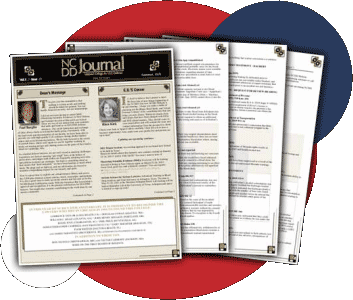NCDD NHTSA Advanced Roadside Impaired Driving Enforcement (ARIDE) Course

What does the NCDD ARIDE Badge Represent?
The National College for DUI Defense ARIDE course follows all the standards that are set out by the National Highway Traffic Safety Administration.
This is the same course that virtually every police officer in the United States attends in order to become proficient in DUI drug detection.
The Advanced Roadside Impaired Driving Enforcement (ARIDE) program was developed by the National Highway Traffic Safety Administration (NHTSA) with input from the International Association of Chiefs of Police (IACP) Technical Advisory Panel (TAP) and the Virginia Association of Chiefs of Police. ARIDE was created to address the gap in training between the Standardized Field Sobriety Testing (SFST) and the Drug Evaluation and Classification (DEC) Program.
ARIDE is intended to bridge the gap between these two programs by providing officers with general knowledge related to drug impairment and by promoting the use of DREs in states that have the DEC Program. One of the more significant aspects of ARIDE is its review and required student demonstration of the SFST proficiency requirements.
This course will train attorneys [just like law enforcement officers] to observe, identify, and articulate the signs of impairment related to drugs, alcohol or a combination of both, in order to reduce the number of impaired drivers and impaired driving related traffic collisions. This course will train other criminal justice professionals (prosecutors, toxicologists, etc.) to understand the signs of impairment related to drugs, alcohol, or a combination of both and enable them to effectively work with law enforcement in order to reduce the number of impaired drivers and impaired driving related traffic collisions.
This course is a 16 hour classroom course which includes instruction on:
By taking this course, a defense attorney can immediately determine, by a review of the evidence, whether a police officer followed the correct procedures prior to arresting the person. This is extremely important in challenging probable cause to arrest, or implied consent suspensions.
A lawyer trained in NCDD NHTSA ARIDE testing, can cross-examine a police officer who deviates from the standardized testing and scoring.
The National College for DUI Defense training is extremely important in DUI defense and we encourage defense attorneys across the nation to attend.




